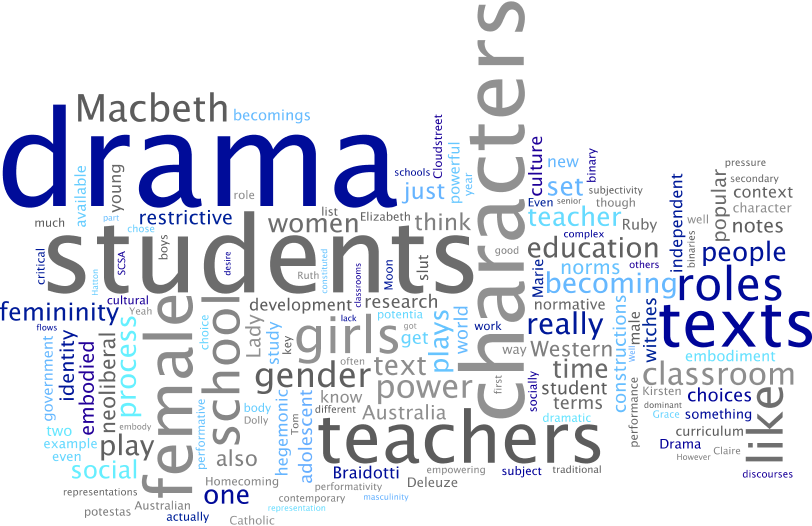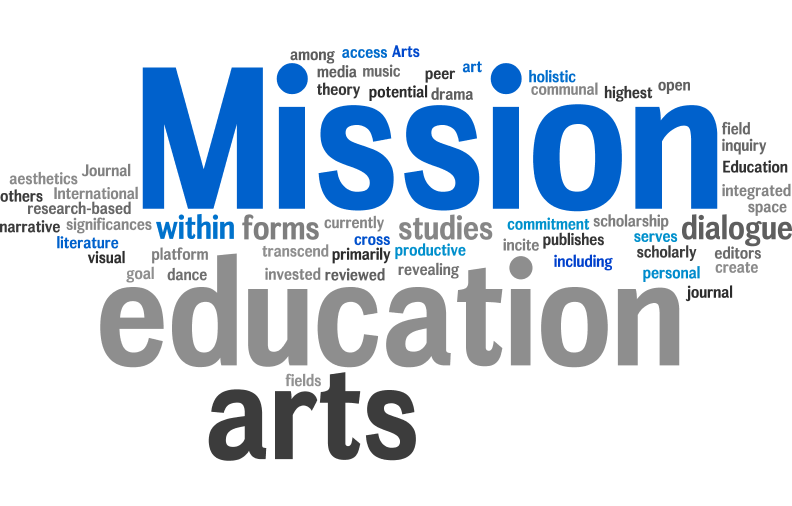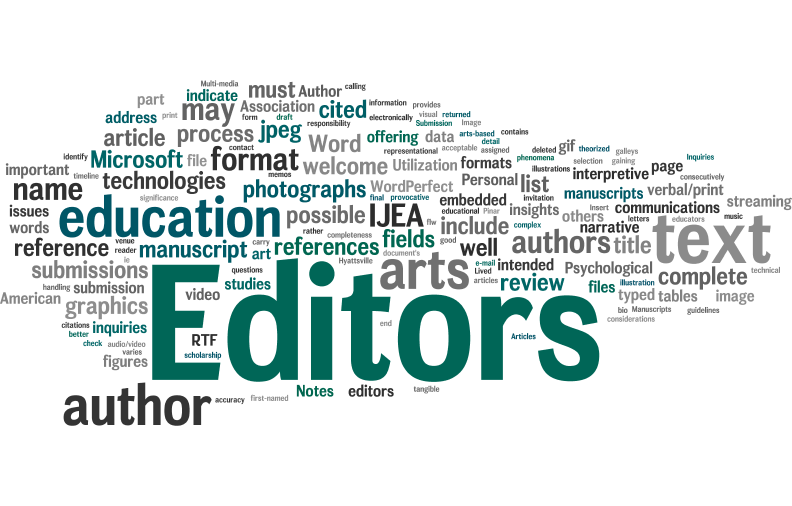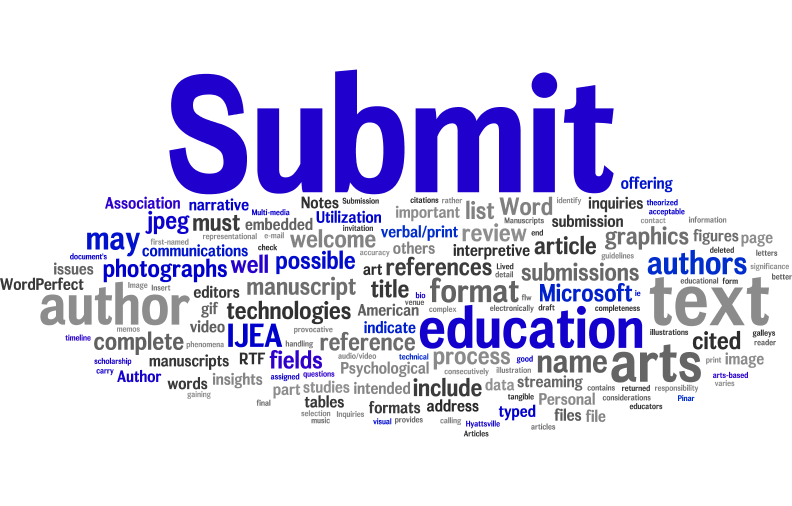| Volume 18 Number 18 | April 29, 2017 |
More Than “Sluts” or “Prissy Girls”: Gender and Becoming in Senior Secondary Drama Classrooms
Kirsten Lambert
Murdoch University, Australia
Peter R. Wright
Murdoch University, Australia
Jan Currie
Murdoch University, Australia
Robin Pascoe
Murdoch University, Australia
Citation: Lambert, K., Wright, P. R., Currie, J., & Pascoe, R. (2017). More than “sluts” or “prissy girls”: Gender and becoming in senior secondary drama classrooms. International Journal of Education & the Arts, 18(18). Retrieved from http://www.ijea.org/v18n18/.
Abstract
This article examines the relationships between the embodiment of dramatic characters, gender, and identity. It draws on ethnographic data based on observations and interviews with 24 drama teachers and senior secondary drama students in Western Australia. We explore how student becomings in year 12 drama classrooms are mediated and constituted through socially overcoded gender binaries in a dominant neoliberal culture of competitive performativity. We ask the questions: What constructions of femininity and masculinity are students embodying from popular dramatic texts in the drama classroom at a critical time in their social and emotional development? Are these constructions empowering? Or disempowering? What factors are influencing teachers’ choices of texts for their predominantly female students? Our research shows that what is delimiting about this potentiality in a time of identity exploration and formation are the constraining gender-binary roles available to young women particularly, and the performative pressures teachers are experiencing.
Visual Abstract




